Cardano's 'centralization' concerns put a 30% ADA price crash in play
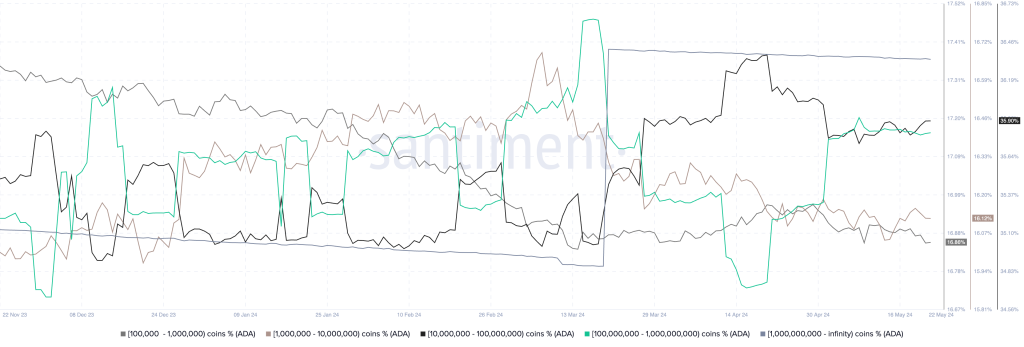
Cardano whales are accumulating ADA during the correction period, ignoring the centralization warning.

Cardano’s (ADA) price has declined by 7.25% to reach $0.474 on May 22, two days after cryptocurrency analyst Justin Bons accused the blockchain project of being extremely centralized.
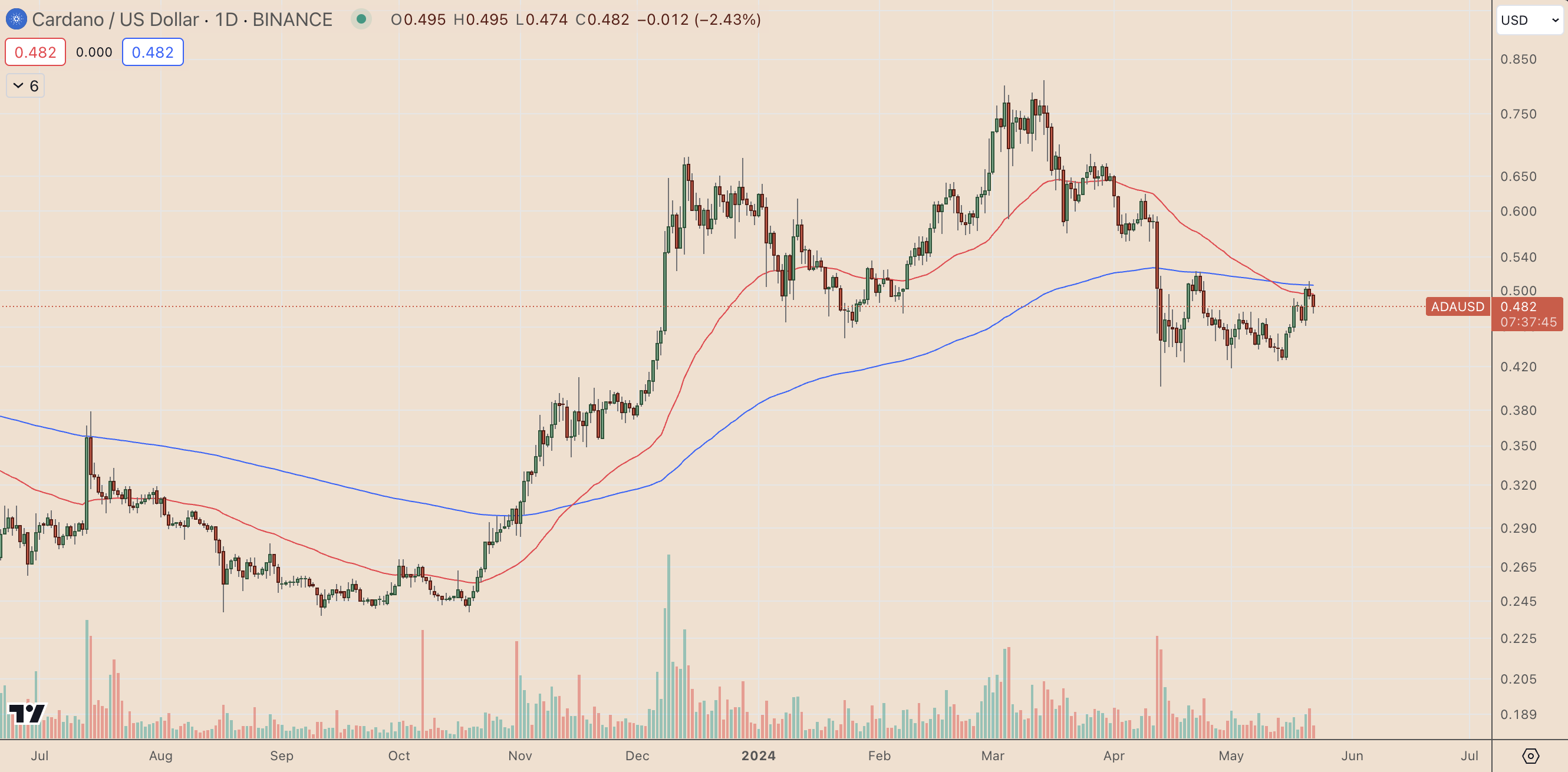
Bons argued that Input Output Global (IOG), the parent company of Cardano, controls 5 out of 7 of the blockchain’s “genesis keys,” cryptographic keys that were used to sign and establish the initial block of the Cardano blockchain back in 2015.
“The genesis keys allow code changes to be pushed out seamlessly without a hard fork,” the analyst said, adding:
“This means IOG could halt the chain, change emission schedules, censor & far more That is an unprecedented degree of centralized control for an L1 chain.”
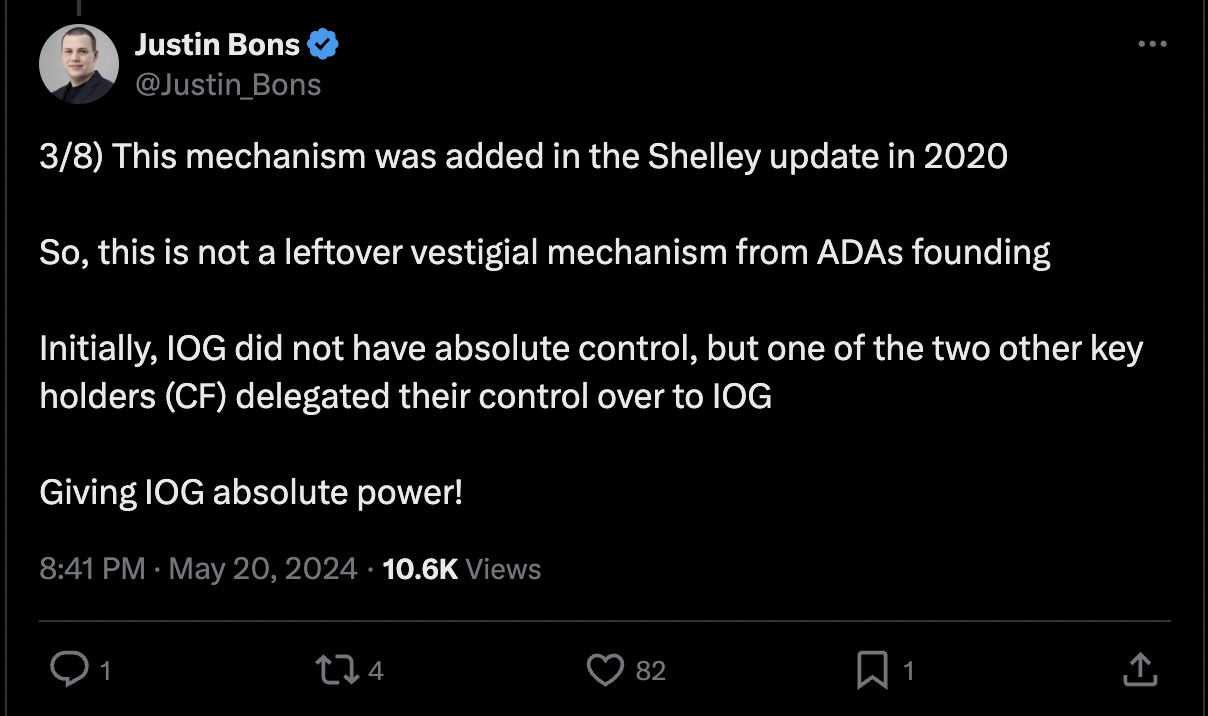
ADA’s decline after Bogs’s comments triggered a bearish setup that could lead to another 30% price crash by June.
ADA risks triangle breakdown ahead
Cardano’s ongoing correction further comes after reaching a familiar descending trendline resistance, which is part of a prevailing symmetrical triangle pattern.
A symmetrical triangle in a downtrend is considered a bearish continuation pattern, characterized by the formation two converging trendlines: one ascending and the other descending. As a rule of technical analysis, this pattern resolves after the price breaks below the lower trendline and drops by as much as the maximum triangle height.
As of May 22, ADA’s price was correcting after testing the triangle’s upper trendline. It now eyes an extended retreat toward the lower trendline at around $0.44, down 6.5% from the current price levels, by the end of May.

A decisive symmetrical triangle breakdown could cause ADA’s price to drop toward the $0.336-0.366 area—approximately 20-25% from the current price level, depending on the breakdown point.
On a brighter note, ADA’s price is bouncing after testing its multi-month ascending trendline support.
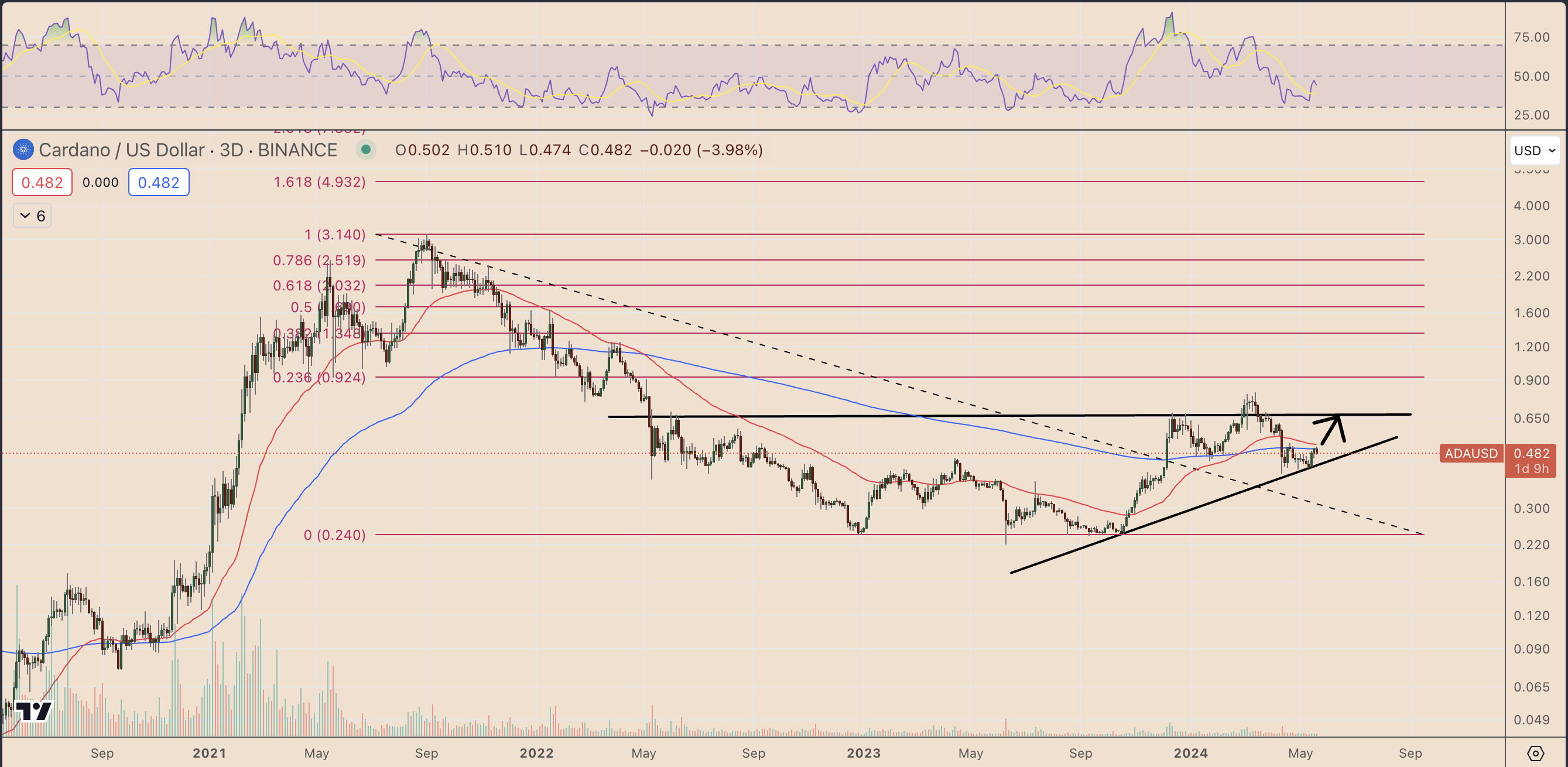
A broader rally is possible if the price breaks above its 50-3D (the red wave) and 200-3D (the blue wave) exponential moving averages (EMA). In that case, ADA’s initial upside target would be around $0.67, up around 35% from the current price levels.
The $0.67-level served as resistance in December 2023 and May 2022.
Cardano whales are accumulating
Cardano’s ongoing price correction coincides with a slight rise in the ADA supply held by its richest addresses, indicating that these whales have ignored Bogs’s warnings about Cardano’s so-called centralization.
For instance, entities that hold 10 million-100 million ADA (black) and 100 million-1 billion ADA (teal) tokens have increased their holdings in the past 24 hours. This trend shows that most whales are buying the price dip in anticipation of further gains.
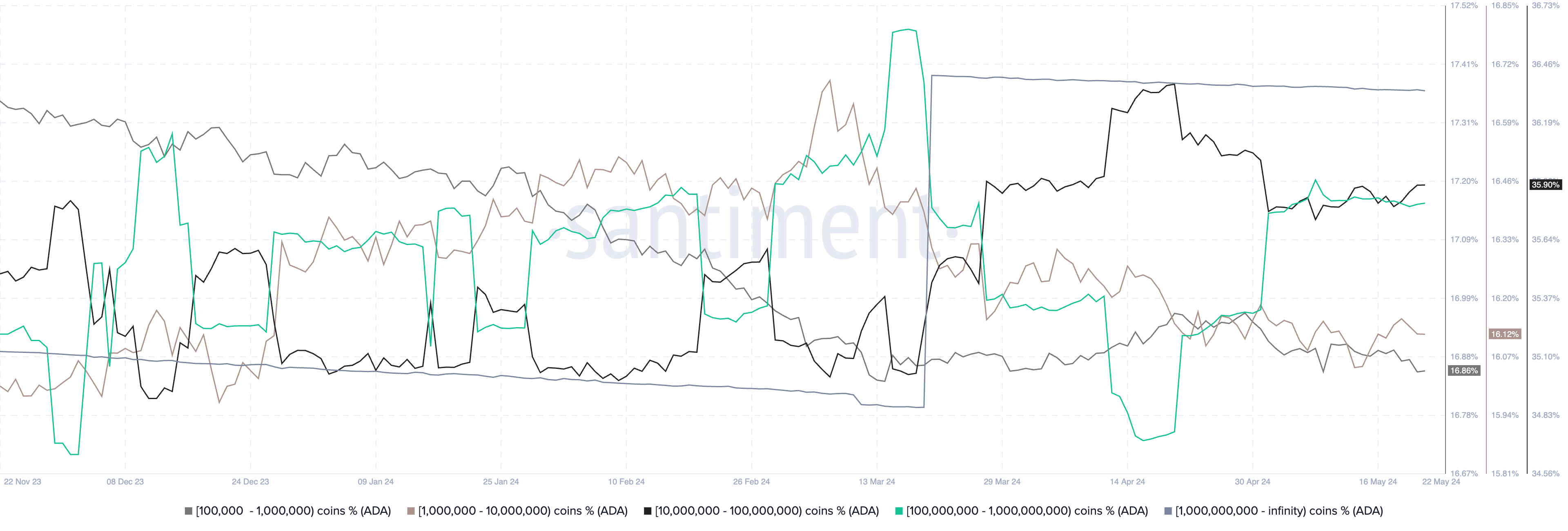
Looking broadly, the 10 million-100 million cohort shows a sharp increase in ADA holdings around the end of March, followed by some stabilization. Meanwhile, the 100 million-1 billion cohort has steadily increased, particularly notable from mid-March onward.
Related: Rally or dud: What to expect if spot Ether ETFs are approved
During this period, ADA’s price has dropped by over 20%, suggesting that most Cardano whales anticipate the price rising further in the long term.
This article does not contain investment advice or recommendations. Every investment and trading move involves risk, and readers should conduct their own research when making a decision.


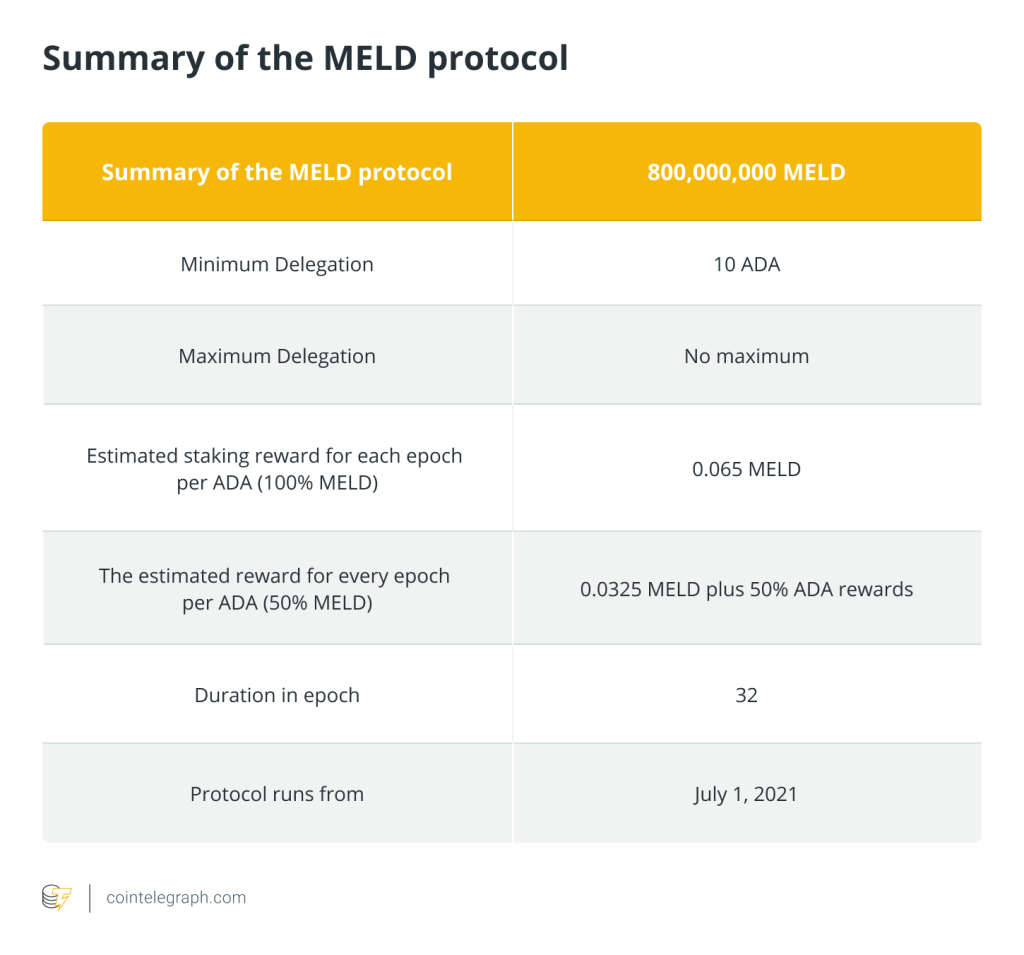
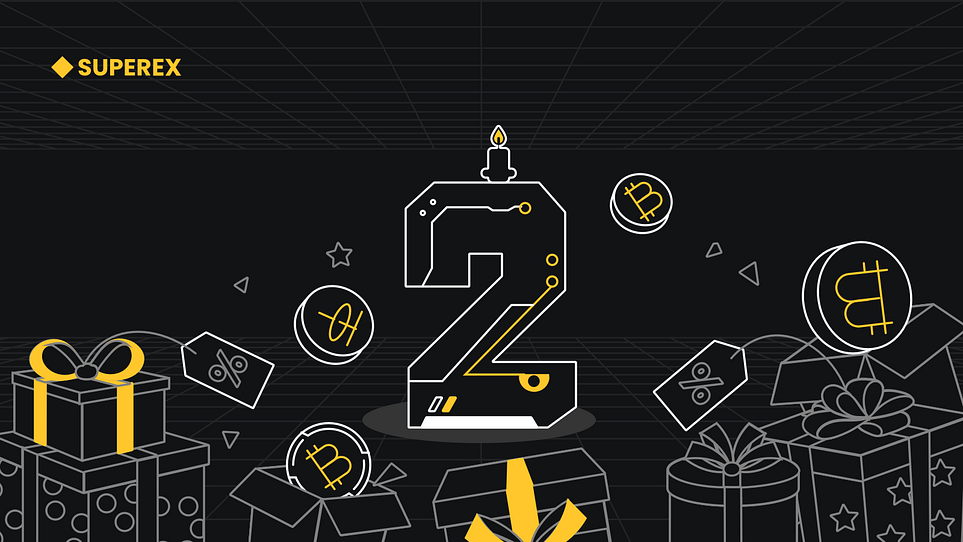
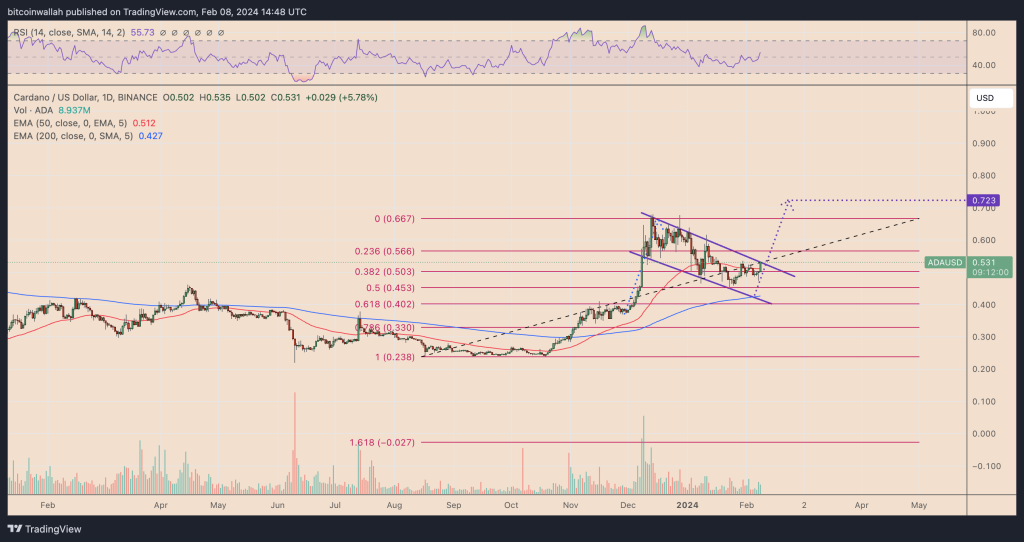
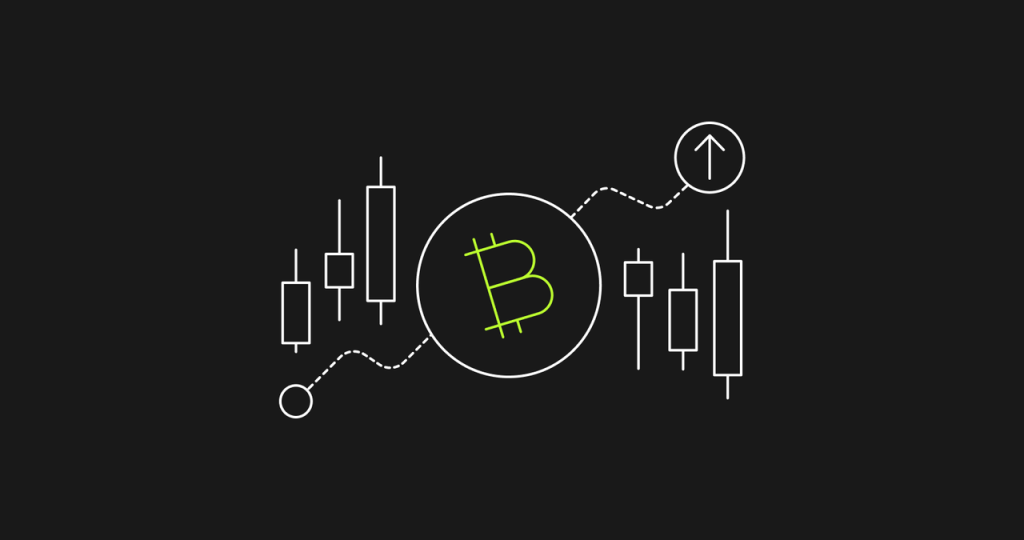
Responses